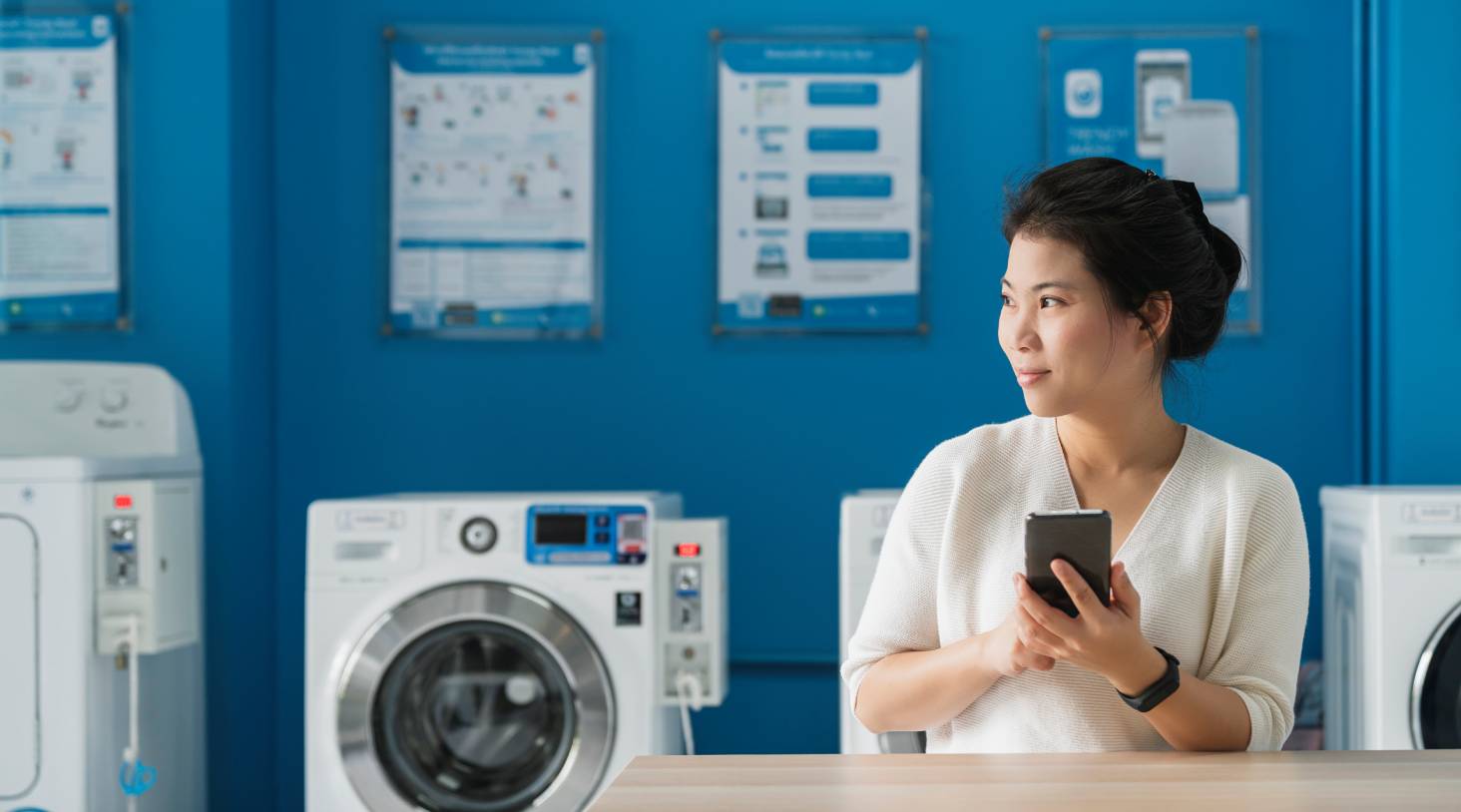The laundry service industry in Bangkok is evolving rapidly, driven by technological advancements, growing consumer demand for convenience, and a push toward sustainability. As one of Southeast Asia’s busiest and most vibrant cities, Bangkok presents a unique landscape for innovation in laundry services. In this article, we explore the future of laundry services in Bangkok, focusing on emerging trends and innovations that are shaping the industry.
1. Increased Demand for Convenience
As the city’s population grows, so does the demand for more convenient and time-efficient services. Busy professionals, students, and tourists alike are seeking laundry services that offer speed and convenience. This has led to the rise of laundry delivery apps, where users can schedule pickups and deliveries at their convenience, often with same-day service. These platforms are gaining traction because they provide a hassle-free experience, and they’re ideal for those who have little time for traditional laundry trips.
In the future, we can expect more on-demand laundry services, expanding beyond basic laundry and incorporating options like ironing, folding, and dry cleaning. Companies are also expected to expand their hours of operation, ensuring that laundry services are available when customers need them most, even during late nights or weekends.
2. Sustainability and Eco-Friendly Practices
As sustainability becomes a top priority for consumers, laundry services in Bangkok are increasingly adopting eco-friendly practices. These include using biodegradable detergents, water-saving technologies, and energy-efficient machines. With a growing awareness of environmental issues, consumers are more inclined to choose services that align with their values.
Future laundry services are likely to adopt more green initiatives, such as water recycling systems and eco-friendly packaging for laundry deliveries. Additionally, the rise of eco-conscious brands will lead to more businesses offering environmentally friendly laundry solutions, which will cater to the growing demand for sustainable services.

3. Technological Innovations: AI and Smart Laundry Machines
Technology is playing a huge role in reshaping the laundry service industry. The integration of Artificial Intelligence (AI) and smart technology into laundry machines is set to revolutionize the way businesses operate. Smart washing machines and dryers can adjust settings based on the type of clothing being washed, ensuring the best results while minimizing energy usage.
AI is also being used to enhance customer service in the form of chatbots that provide immediate assistance or answer queries about laundry processes. With advancements in machine learning, companies can also predict customer needs and offer personalized services based on past behaviors and preferences.
In the future, we might also see self-service laundry kiosks and automated laundry sorting machines that allow customers to quickly sort their laundry based on fabric type, washing requirements, and more. This not only improves the customer experience but also optimizes operational efficiency.
4. Subscription-Based Laundry Services
As convenience continues to be a significant factor for customers, we’re likely to see an increase in subscription-based laundry services. For a fixed monthly fee, customers can have their laundry picked up, cleaned, and delivered regularly. These services cater to busy individuals and families who want to outsource their laundry needs but prefer predictable costs.
Such services will not only cater to individual consumers but also businesses such as hotels, gyms, and spas that require frequent laundry services. Subscription models help companies streamline operations, ensuring they can focus on quality and customer service while maintaining regular, consistent revenue.

5. Integration with Smart Cities
Bangkok is steadily moving toward becoming a smart city, and this trend is also infiltrating the laundry service industry. The integration of IoT (Internet of Things) in laundry services could make the process even more seamless. For instance, customers may be able to track the status of their laundry in real-time, receive notifications on when to expect delivery, or even manage their laundry orders through voice-activated devices like Amazon Alexa or Google Assistant.
Additionally, businesses may partner with smart city infrastructure to offer more localized and efficient services, with delivery and collection points located in accessible areas such as apartment complexes or office buildings.
Conclusion
The future of laundry services in Bangkok looks promising, with technological advancements and a focus on sustainability driving innovation in the industry. As convenience becomes even more important to customers, services are evolving to meet these demands through smart technologies, eco-friendly practices, and subscription models. Businesses that embrace these changes will not only stay competitive but will also play a role in shaping the future of the laundry service industry in the city.



